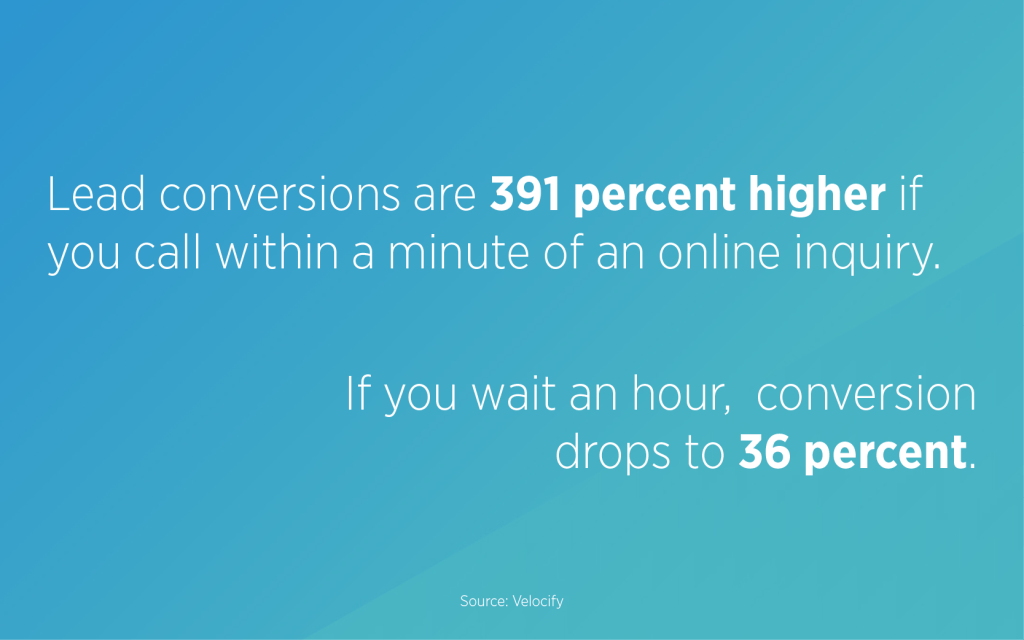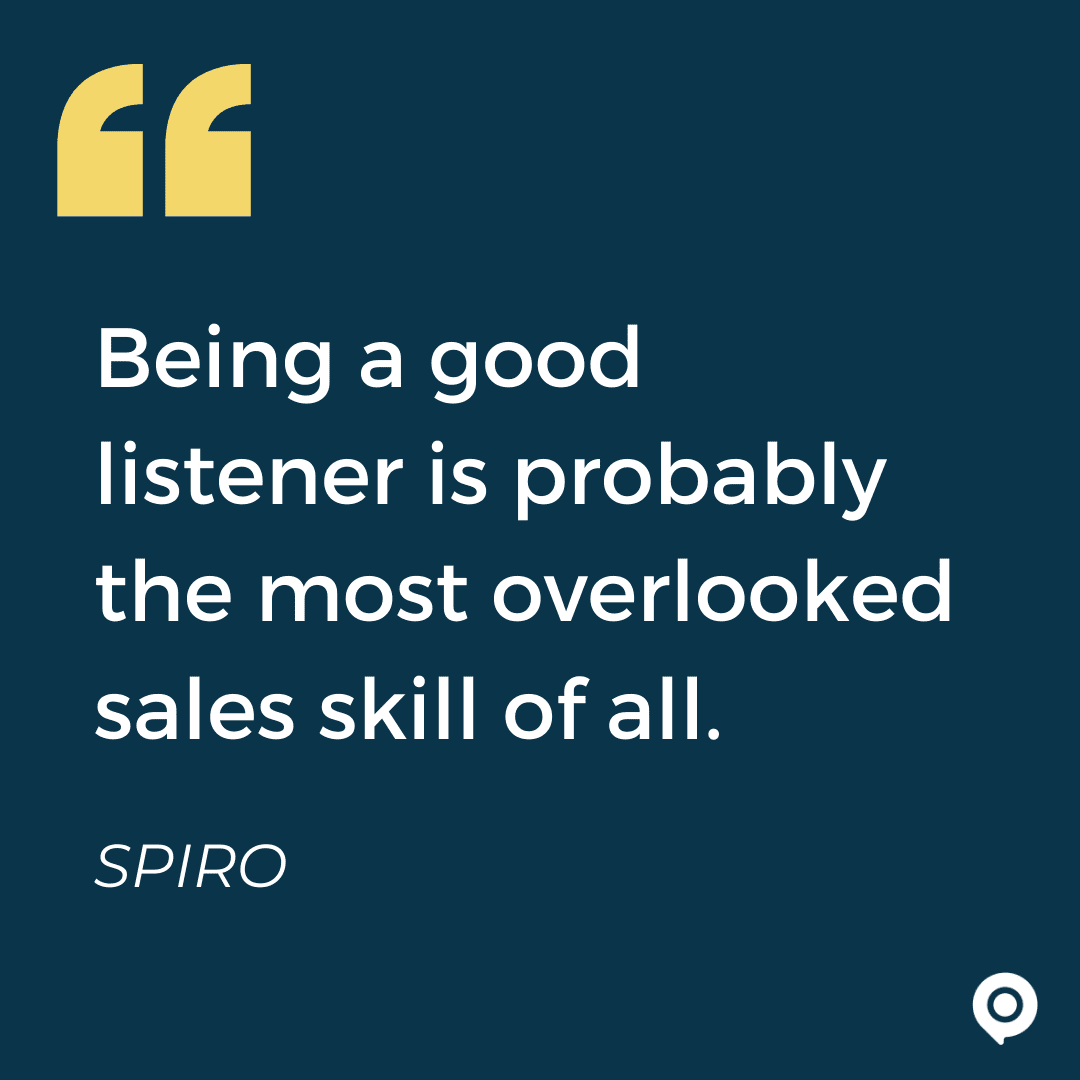
Looking for sales help for your business? You’ve come to the right place. We’ve compiled 15 valuable sales tips to help you become a more effective salesperson.
Whether you’re new to sales or a seasoned professional, these tips provide you with actionable strategies to help you improve your skills and close more deals.
1. Know Your Product(s) Inside and Out
The first step to becoming a better salesperson is to know your product(s) inside and out. This means understanding its features and benefits, as well as how it compares to similar products on the market. You should also be able to answer any questions that prospects and customers may have about your product.
The best way to learn about your product is to use it yourself, read the product documentation, and talk to other salespeople on your team. When you really understand your product, you’re able to explain its value and meet your customers’ needs perfectly. Product knowledge boosts your confidence and also makes you seem more credible to prospects.
2. Understand Your Prospects’ and Customers’ Needs
Once you know your product, you need to understand your customer’s and target prospects’ needs. What are their pain points? What are their budget constraints? What solutions are they looking for? Once you understand those questions, tailor your sales pitch to align with those needs to position yourself as the best solution provider.
A good way to learn about and understand a prospect’s needs is to ask questions. Ask them about their business, industry, goals, and challenges. Do research on their company and industry to learn more about their needs. Then, make a conscious effort to incorporate your research into your sales pitch and future conversations.
3. Build Strong Relationships
People are more likely to buy from someone they know and trust. That’s why it’s so important to build relationships with your customers. Sales isn’t just about transactions; it’s about creating meaningful relationships because real connections drive growth. You won’t get very far if you’re only focused on closing deals.
Establish good rapport and trust with your customers. Be helpful, informative, and responsive when they contact you. Have authentic conversations and show genuine interest in your customers’ needs and concerns to lay the foundation for long-term relationships.
Continue to deliver value after the sale and maintain regular communication. It’s easy to keep conversations going after the initial sale by setting up automatic drip campaigns with Skipio. With drip campaigns, you continue to connect and keep customers engaged, driving more sales.
Really, you want to build lasting relationships with customers because it leads to repeat business, referrals, and a solid reputation for you and your business.
4. Develop Effective Communication Skills
Communication is key in sales. You need to be able to communicate your sales message in a clear, concise, and persuasive way. Clear communication helps you discover what your customers really want and enables you to show how your product fully meets their expectations.
Effective salespeople are also skilled listeners. Practice active listening by giving your prospects your full attention, maintaining eye contact, and avoiding interruptions. This lets you better understand their needs, objections, and buying signals, allowing you to respond appropriately and build stronger relationships.
A good way to practice your communication skills is by role-playing your sales pitch to a colleague or a friend.
5. Learn How to Overcome Objections
Objections and rejections are always going to be part of the sales process. However, rather than viewing objections as roadblocks, consider them opportunities to provide more information and clear up doubts.
When a potential customer raises an objection, don’t get defensive. Instead, listen to the objection and try to understand where they are coming from. Then, address the objection directly and honestly.
To help you do this, anticipate common objections and practice your responses ahead of time. This will help you to turn a ‘no’ into a ‘yes’ by quickly addressing concerns and showing the value of your product.
6. Personalize Your Communication
One of the best sales tips we can give you is to personalize your communication. Studies show that 72% of customers will only engage with personalized messages. So, if you want more conversions, tailor your sales messages and other communications to each individual prospect and customer.
Personalize your sales pitches, emails, and texts to show that you understand their circumstances and challenges. Use the prospect’s name, address their specific needs, and show them how your product or service can help them.
Here are some examples of how to personalize your sales communication:
- Instead of sending a generic email to all your prospects, send personalized emails or texts to each prospect. In your message, refer to something specific about the person, such as something they said in past communications.
- When you’re on a call with a prospect, ask them questions about their business and goals. Then, use their answers to tailor your sales pitch.
- If you’re meeting with a prospect in person, take the time to get to know them before you start talking about your product or service. Ask them about their hobbies, family, and interests.
- If you see that a prospect has recently published an article or blog post, share it on social media and tag them. This is a great way to show interest in their work and that you follow their thought leadership.
When people feel like you care about them and that you’re interested in helping them, they’re more likely to buy from you.
7. Follow Up Quickly and Continuously
Persistence is often the key to sales success. Don’t assume that a single interaction will lead to a sale. In fact, most often, it takes at least eight touchpoints with a lead before they convert and become a customer. So don’t give up on a prospect after just one point of contact.
Follow up multiple times using different channels, such as email, text messages, and even voicemail drops. Consistent and timely follow-ups with your prospects keep your business top of mind and addresses any lingering concerns. A well-timed follow-up can help seal the deal.
8. Practice Time Management
Effective time management is crucial. Don’t wait until the last week of the quarter to realize you forgot to follow up with a prospect or didn’t complete an important task. Start prioritizing your workload by setting daily or weekly goals and using tools like calendars or project management software to stay organized. Efficient time management ensures that you allocate your energy to high-priority sales activities.
To help you save time, automate certain communications with Skipio. Skipio helps you keep conversations and deals moving with automated text follow-ups and drip campaigns. You increase replies and conversions without spending a lot of your time manually reaching out.
9. Focus on Value, Not Price
While price is definitely a consideration for most customers, it’s important to shift the focus toward the value your product or service has. Many salespeople make the mistake of fixating solely on the price of their product or service, thinking that a lower price will automatically win over customers.
Instead, calculate the potential ROI and show them how your product or service can generate more revenue, reduce costs, or increase efficiency. When people see a clear path to a positive return, price becomes less of a concern.
10. Continue Learning
The sales field is constantly evolving. New industry trends, sales techniques, competitors, and technologies emerge all the time. You need to continuously learn and improve your skills to stay ahead of the curve.
Here are a few ways to continue your learning:
- Attend sales trainings and workshops
- Read relevant books and articles
- Get new certifications
- Seek out mentors
- Join relevant online groups or communities
When you have the knowledge, skills, and experience that your prospects are looking for, you’re more likely to close deals and build long-term relationships with customers.
11. Set Realistic Goals
Goal setting is a powerful motivator and accountability tool, but you’ll set yourself up for failure if you make unrealistic goals. Define clear, achievable sales targets for yourself and/or your team.
Break goals down into smaller, manageable milestones to help you track your progress and adapt your strategies if necessary. Realistic goals are a great way to motivate you and drive you toward success.
Applying the SMART criteria to your goals is a good rule of thumb. Make sure they are Specific, Measurable, Achievable, Relevant, and Time-bound. SMART goals provide a structured framework for goal-setting, making it easier to measure your progress. For example, a SMART goal might be, “Increase quarterly sales in the Southeast region by 15% within the next six months.”
12. Develop a Personal Brand
Why does personal branding matter so much in sales? Your personal brand is what sets you apart from other salespeople and makes you unique and memorable. A well-crafted personal brand attracts potential customers and positions you as a trusted authority in your industry.
Develop a personal brand that is authentic and reflects your values and personality. Be visible online and offline and connect with people who share your interests. You can create an online presence through social media, such as LinkedIn.
13. Collaborate with Your Team
Sales is often a collaborative effort, especially in larger organizations. Collaborate with your colleagues, share best practices, and learn from each other’s successes and failures. A supportive team provides insights, motivation, and encouragement, ultimately contributing to your individual and collective success.
Here are some tips to help you collaborate better with your sales team:
- Regularly meet with your sales team to share best practices and learn from each other’s experiences.
- Work together with your sales team to generate and qualify leads. This helps you save time and focus on the leads that are most likely to convert into customers.
- Collaborate with your sales team to cross-sell and upsell to existing customers to increase sales.
- When another salesperson is struggling, be there to provide support. This helps them stay motivated and on track to achieve their goals and the company’s goals.
14. Embrace Rejection
Rejection is a normal part of the sales process. So if you’re feeling discouraged after getting rejected, know you’re not alone.
The trick is to embrace rejection and not let it get you down. You need to view rejections just like you view objections: as an opportunity to learn and improve. Ask yourself why the prospect said no. Was it because they didn’t really need your product or service? Was it because they didn’t like your sales pitch? Was it because they didn’t trust you? When you know why they said no, make changes so you’re more likely to get a ‘yes’ in the future.
15. Listen to Customer Feedback
One of the most important things you can do to improve your sales skills is to listen to customer feedback. This includes both positive and negative feedback. Positive feedback helps you identify your strengths and continue to do the things that work well. Negative feedback helps you identify the areas where you need to improve.
There are many ways to collect customer feedback. Ask for feedback directly from your customers and collect it through surveys, social media, or online reviews. Once you have feedback, it’s important to take time to review it and identify any common themes.
When you have identified common themes in the feedback, start to develop plans to address them.
For example, if you receive a lot of feedback about your sales process being long, you may want to figure out ways to streamline your process. Or, if you receive a lot of feedback about your lack of product knowledge, you or your company might want to invest in additional training for you and your sales team.
Listening to customer feedback, providing sales help, and taking action shows your customers that you value their input and want to improve their experience with your brand. This leads to increased customer loyalty and sales.
Speed Up Your Sales Process With Skipio
Consistently following these 15 sales tips will get you started on the path to becoming a better salesperson. But if you want to speed up your sales, start using Skipio to send automated text messages.
Automated conversational business texts lead to higher reply rates, faster appointment settings, and quicker closings—all while saving you time. It’s the best way to conveniently connect and follow up with leads and customers.



